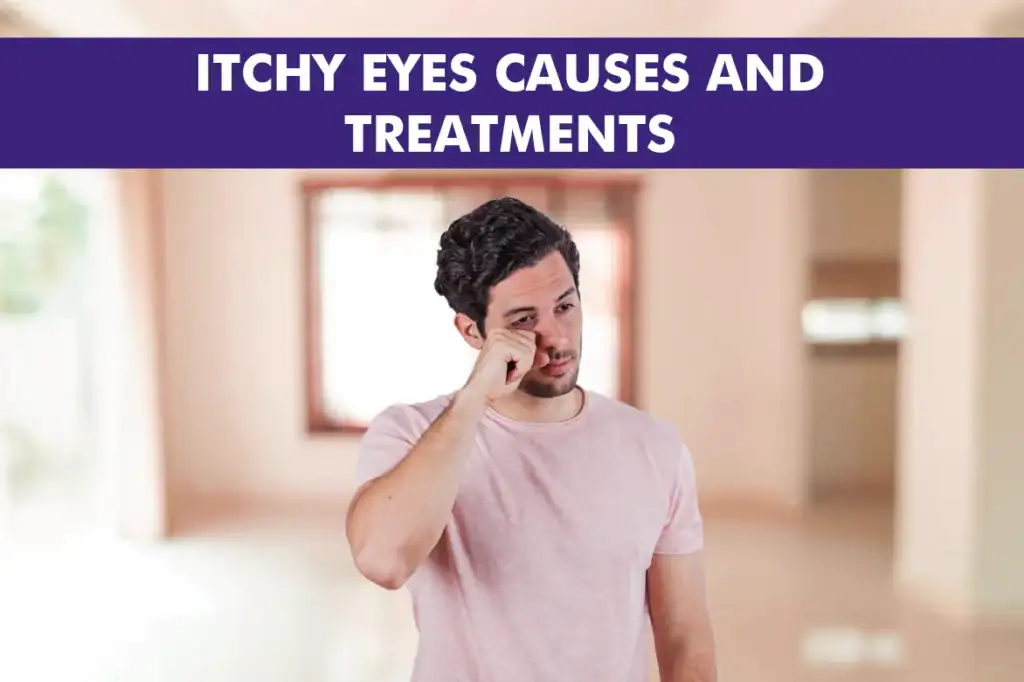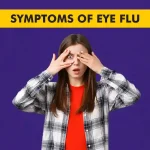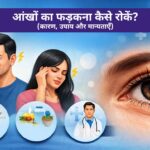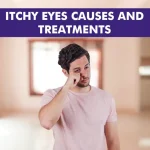Itchy eyes are a frequent and uncomfortable symptom experienced by people of all ages. Often dismissed as a minor annoyance, persistent itching can signal deeper underlying issues requiring clinical attention. Itchy eyes have numerous causes, ranging from temporary irritants to chronic medical conditions. This blog offers a detailed, professional understanding of itchy eyes, helping patients recognise symptoms, identify triggers, and seek treatment.
Itchy Eyes Symptoms
While the sensation of itching is the most recognisable symptom, individuals with itchy eyes may also experience:
- Redness or bloodshot appearance
- Tearing or watery discharge
- Burning or stinging sensations
- Gritty feeling in the eyes
- Eyelid swelling
- Sensitivity to light
These symptoms may present together or independently, and their duration often varies based on the underlying cause.
Itchy Eyes Common Triggers
Before exploring specific medical conditions, it’s essential to understand the common triggers associated with itchy eyes. These include:
- Airborne allergens (pollen, dust mites, mould spores)
- Eye makeup and cosmetic products
- Smoke or pollution exposure
- Chlorinated pool water
- Pet dander
- Extended digital screen time
These can provoke an immune response or irritate the ocular surface, leading to itching.
Itchy Eyes Allergies
One of the leading causes of itchy eyes is allergic conjunctivitis. This condition occurs when the eye’s conjunctiva, the clear tissue covering the white part of the eye, reacts to allergens. There are two primary forms:
Seasonal Allergic Conjunctivitis (SAC)
Triggered by outdoor allergens like pollen, SAC is most common in the spring and fall. Patients may experience watery, itchy, and red eyes.
Perennial Allergic Conjunctivitis (PAC)
This form persists year-round and is usually caused by indoor allergens like dust mites, pet dander, or mould.
Treatment for itchy eyes due to allergies typically includes antihistamine drops, oral antihistamines, or mast cell stabilisers. In some cases, immunotherapy may be considered.
Dry Eye Syndrome
Dry eye syndrome is another common contributor to eye discomfort. When the eyes do not produce enough quality tears, the ocular surface becomes dry, irritated, and inflamed.
Patients with dry eyes may paradoxically experience excessive tearing due to reflex tear production. However, these reflex tears do not effectively lubricate the eyes.
Environmental conditions such as wind, air conditioning, or long hours at a computer can worsen symptoms. Artificial tears and other dry eye remedies are often prescribed to resto
Eye Infections
Certain infections, particularly viral or bacterial conjunctivitis, can also result in itchy eyes. These conditions are highly contagious and often accompany additional symptoms such as:
- Mucous discharge
- Crusting of the eyelids
- Blurred vision
- Swollen lymph nodes (in viral cases)
While viral conjunctivitis often resolves independently, bacterial cases may require antibiotic drops. Early diagnosis is critical to managing infection and limiting spread.
Contact Lenses
Individuals who wear contact lenses are particularly susceptible to eye irritation and itching. Improper lens hygiene, overuse, or sensitivity to lens cleaning solutions can all provoke inflammation.
Specific conditions like Giant Papillary Conjunctivitis (GPC) develop due to prolonged lens wear and manifest as persistent itching, mucus discharge, and lens discomfort.
To manage this, eye care professionals often recommend switching to daily disposable lenses or stopping lens wear entirely until symptoms resolve.
Environmental Factors
Environmental irritants are often overlooked as causes of itchy eyes. Pollution, cigarette smoke, strong perfumes, and chemical fumes can all be external irritants.
Consistent exposure to fine particles and airborne chemicals can contribute to chronic eye inflammation in urban areas. Wearing protective eyewear, using air purifiers at home, and practising good eye hygiene can help reduce exposure.
Medical Conditions
Certain systemic or ocular conditions can also manifest with itchy eyes. These include:
- Blepharitis is inflammation of the eyelid margins, often linked to bacterial overgrowth or skin conditions like rosacea or seborrheic dermatitis.
- Atopic keratoconjunctivitis (AKC): A chronic, more severe allergic eye disease that may affect people with eczema or asthma.
- Meibomian gland dysfunction (MGD): A common cause of evaporative dry eye, where the oil-producing glands in the eyelids are blocked.
These conditions often require targeted treatments and long-term management strategies for adequate eye allergy relief.
Diagnosis
A comprehensive eye exam is essential to identify the root cause of itchy eyes. During the consultation, an eye specialist will evaluate:
- The patient’s medical history and allergy profile
- Tear production and quality
- Eyelid and conjunctival health
- Presence of any infections or inflammation
Depending on symptoms, specialised tests, such as tear film breakup time, conjunctival swabs, and allergy testing, may be recommended.
Itchy Eyes Treatment
Effective management starts with identifying the precise cause. Familiar itchy eyes treatment options include:
- Artificial Tears: Help hydrate dry, irritated eyes.
- Antihistamine Eye Drops: Reduce allergic inflammation and itching.
- Steroid Eye Drops: These are used for more severe allergic reactions under medical supervision.
- Antibiotics or Antivirals: For cases involving bacterial or viral infections.
- Lifestyle Adjustments: Reducing screen time, using humidifiers, and avoiding irritants.
Patients should consult a qualified ophthalmologist before starting treatment, especially when symptoms persist.
Eye Allergy Relief
To gain relief from allergic reactions affecting the eyes, consider the following strategies:
- Use cold compresses to soothe inflammation.
- Avoid rubbing the eyes, which can worsen symptoms.
- Close windows during high pollen days.
- Change HVAC filters frequently.
- Shower and wash your hair after being outdoors to remove pollen.
Over-the-counter or prescription medications may be suggested depending on the severity of symptoms.
Dry Eyes Remedies
For those experiencing dry eyes as the cause of itchiness, several remedies are available:
- Lubricating Eye Drops: Preservative-free options are preferred for frequent use.
- Eyelid Hygiene: Regular cleansing with warm compresses and gentle lid scrubs.
- Omega-3 Supplements: This may help improve tear film stability.
- Moisture Chamber Glasses: Create a protective barrier against wind and dry air.
- Punctal Plugs: Inserted by an eye doctor to prevent tear drainage and retain moisture.
Dry eye remedies should be customised based on the severity and type of dry eye (aqueous-deficient or evaporative).
When to See a Doctor
Patients should seek prompt medical evaluation if they experience:
- Persistent itching lasting more than a week
- Vision changes or blurred vision
- Severe redness or eye pain
- Mucous discharge or crusting
- Swelling around the eyes
Early intervention not only ensures comfort but also helps prevent complications.
Prevention Tips
Proactive steps can minimise the chances of developing itchy eyes:
- Maintain proper contact lens hygiene.
- Limit exposure to known allergens and irritants.
- Use protective eyewear in windy or polluted environments.
- Stay hydrated and maintain a balanced diet.
- Follow the 20-20-20 rule during screen use (every 20 minutes, look at something 20 feet away for 20 seconds).
These habits can support long-term eye health and reduce recurring discomfort.
Conclusion
Understanding the itchy eyes is essential for anyone experiencing this common but often overlooked symptom. While occasional itching may not be alarming, recurrent or severe symptoms merit professional evaluation. Effective itchy eye treatment options can be tailored with the correct diagnosis to provide lasting relief. A targeted approach can improve comfort and ocular health, whether it’s through managing allergies, treating infections, or addressing dryness.
Start relieving your eye strain and enjoy better eye comfort. Book your appointment
FAQs
How do you get rid of itchy eyes?
To relieve itchy eyes, use antihistamine eye drops for allergies, lubricating eye drops for dryness, or a cold compress for soothing. Identify causes of itchy eyes and avoid irritants for best results.
How to reduce eye itching?
The best treatment for itchy eyes often includes antihistamine eye drops or oral antihistamines. These help address the underlying causes of itchy eyes and provide relief from irritated itchy eyes. Consult a doctor for recommendations.
Why are my eyes constantly itchy?
Itchy, stinging eyes are often caused by allergies, dry eyes, or infections. Identifying the causes of itchy eyes is key to effective treatment.
How do I stop rubbing my irritated eyes?
To stop rubbing eyes that are irritated and red, use lubricating drops and try cold compresses to soothe irritation. Keeping hands clean and occupied can also help prevent the urge to rub.
What causes itchy eyes in the morning?
Morning itchiness may result from dry eyes overnight, allergens in bedding, or mild blepharitis. Proper nighttime eye care and clean pillowcases can help reduce this symptom.
Can stress lead to itchy eyes?
While not a direct cause, stress can exacerbate eye strain and contribute to habits like rubbing the eyes, which may aggravate itching.
Are itchy eyes a sign of COVID-19?
Itchy eyes are not a classic symptom of COVID-19. However, viral conjunctivitis may occur in some cases. It’s best to consult a healthcare provider for an accurate diagnosis.
Is it okay to use over-the-counter eye drops for itching?
Yes, but only for short-term use and under guidance. Prolonged use without addressing the root cause can mask symptoms and lead to complications.
Can food allergies cause itchy eyes?
Yes. In individuals with food sensitivities, allergic reactions may manifest as itchy eyes and other systemic symptoms such as hives or swelling.





